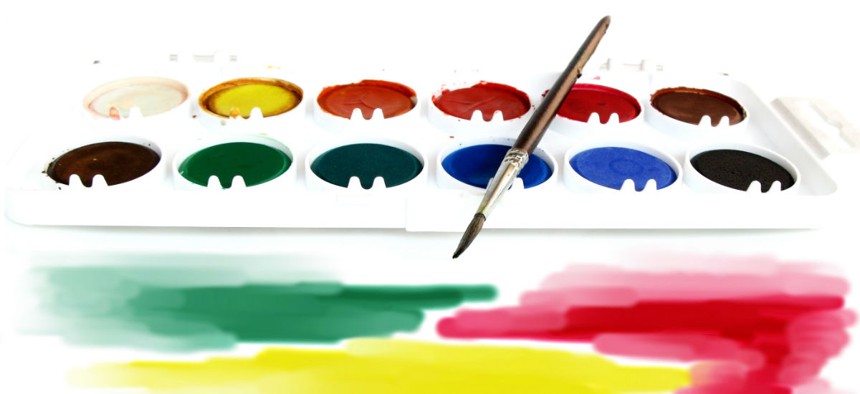
FreeRangeStock.com
5 Simple Ways to Make Creative Thinking a Daily Habit
Let your innovative ideas simmer and percolate with these five daily rituals.
Where or when do you get your best ideas?
I ask that question to a lot of clients and executives attending my presentations and seminars. The answers I often hear are things like "In the shower," "Walking the dog," "Working out," "On my commute," "Taking care of the yard," or "Cleaning the house."
But do you know what answer I never hear? "At my desk in front of my computer." In fact, when I ask if anyone gets their best ideas at their desk, everyone laughs because the very idea is absurd.
People hardly ever get their best ideas at their desks, and yet that’s where most professionals spend most of the day. If it’s not the desk, it’s a conference table, and hardly anyone gets their best ideas there either.
The irony, of course, is that most of the great work any of us do depends on the sparks of insight and creativity that come when we’re not actively focusing on a particular task or trying to solve a problem. We need to create and leave time for unconscious thought.
As neuroscience researcher Loran Nordgren explained to strategy+business magazine, unconscious thought is the more intuitive, right-brained kind of thinking that leads to flashes of insight about how to solve problems. If you’re one of those people who’ve noticed that you get some of your best ideas while you’re in the shower or doing yard work, you know what Nordgren is talking about.
Giving yourself time for unconscious thought is a key component of making effective decisions when there is a large amount of data or a complex problem to solve. The research of Nordgren and his colleagues shows that people make their best complex decisions when they have an opportunity to review the data or the facts and then focus their attention on something else for a while. It’s a process of what psychotherapist Richard Carlson and psychologist Joseph Bailey in their book,Slowing Down to the Speed of Life, called putting a problem on your "mental back burner" to simmer a while.
Ready to give unconscious thought a try? Here are five simple ways to build unconscious thought into your day:
1. LET IT GO
If you want to create space for unconscious thought, you need to give yourself permission to let go of consciously thinking about the problem you’re trying to solve. A great way to do this is to literally tell yourself, "I’m going to stop thinking about this for now," and then go do something else.
2. MOVE YOUR BODY
If that something else involves moving your body, you’re much more likely to come up with fresh insights and ideas on how to solve your problem. Movement leverages the mind-body connection to give a rest to the part of your brain—the prefrontal cortex—where all of the big-time decision-making and analysis goes on. When you come back to your desk after a walk, a workout, or five to 10 minutes of stretching, you’ll be not just physically but also mentally refreshed and renewed.
3. CHANGE IT UP
Encourage unconscious thought by changing up your work environment or routines. Take a morning to work from home at your dining room table. Go to a coffee shop to create a little space for some mid-afternoon mental downtime. Bring a colleague along for a walk while you do some brainstorming together or just take some time to catch up on what’s new with each other. Any of these change-ups or others that work for you give your brain an opportunity to unconsciously think about things other than the immediate problem at hand.
4. BLOCK IT OUT
If your calendar is racked and stacked with back-to-back meetings and conversations all day long, you’re not leaving much time for unconscious thought. Take back some control by blocking out at least one 90-minute chunk on your calendar each week for unconscious thought time. Protect it and when the time comes use one or more of the first three tips to optimize the time.
5. SLEEP ON IT
Have you ever gone to bed mulling over a tough problem and woken up the next morning with a clear picture of how to proceed? If you have, your brain was working and making neural connections while you slept that helped you solve the problem.
Researchers at the University of California at San Francisco found that 95 percent of people need at least seven hours of sleep a night to function at their creative best. If you think you can get by with less, then you’re in the 5 percent of the population that has a rare genetic mutation that enables you to do so. Odds are that you’re not in that group. If you want to be more creative and innovative, give your brain the ultimate opportunity for unconscious thought and get a good night’s sleep.
This article originally appeared on Fast Company.
(Image via nkzs/Shutterstock.com)







